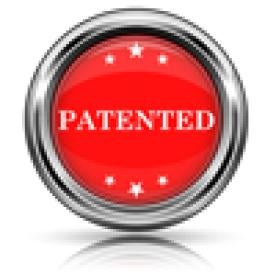Addressing joinder issues, the Patent Trial and Appeal Board (PTAB or Board) denied a request to institute an inter partes review (IPR) and a request for joinder, finding joinder would complicate the instituted IPR and that instituting a new IPR would waste the Board’s resources. Unified Patents Inc. v. C-Cation Techs., Inc., Case No. IPR 2015-001045 (PTAB, Oct. 7, 2015) (Pettigrew, APJ).
The challenged patent is directed to multimedia communication systems. The petitioner, Unified Patents, is an entity that protects various technology sectors of its members by challenging the validity of patents. It uses subscription fees paid by its members to file post-grant proceedings on behalf of its membership. Unified Patents is not involved in any litigation with the patent owner. The Board had already instituted an IPR filed by the ARRIS Group over the same patent and also had already allowed another party (Cox Communications) to join the IPR.
Unified Patents’ IPR petition asserted the same grounds and made the same arguments as ARRIS. Unified Patents’ petition also relied on a declaration from the same expert retained by ARRIS. The patent owner’s arguments regarding the grounds of unpatentability in its Preliminary Response were virtually identical to those made in the ARRIS IPR. The main difference between the ARRIS IPR and Unified Patents’ petition was whether all real parties- in- interest had been identified, with the patent owner claiming that Unified Patents failed to identify all real parties- in-interest. According to the patent owner, Unified Patents “acts as a shill” for its anonymous members. Unified Patents filed a motion to join the ARRIS IPR that neither ARRIS nor the patent owner opposed. In its motion, Unified Patents agreed to consolidate filing and discovery and asserted it would only assume a primary role if ARRIS ceased to participate.
Despite not being opposed by the patent owner, the Board exercised its discretion and denied Unified Patents’ request for joinder, finding that it added a new “real parties-at-interest” issue, which would complicate the ARRIS IPR. According to the Board, because the “real parties-in-interest” issue was not previously addressed, joining Unified Patents into the IPR now could sidetrack the proceedings and shift focus from the substantive issues. The Board also disagreed that there was a need for a second party in the ARRIS IPR because Cox was already joined and could take the primary role if necessary.
The Board also exercised its discretion to decline Unified Patent’s petition because it would be a wasteful duplication of efforts to conduct two separate but parallel IPRs addressing the same patentability issues. The Board took into account that Unified Patents is not a party to any litigation and is not exposed to any threat of patent litigation based on its business model. As such, Unified Patents would not be subject to a bar under 35 U.S.C. § 315(b) and would still be able to refile its petition if the ARRIS IPR is terminated or Unified Patents is dissatisfied with the ARRIS IPR.



 i
i

